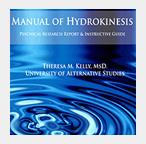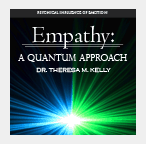Hydrokinesis
Parapsychology Articles, Papers and Books
Home> Articles > Psychic Phenomena > Psychokinesis > Hydrokinesis
![]()
|
| NEWSLETTERS |
| Get the best from QPsychics.com in your inbox! |
|
| PARAPSYCHOLOGY ORGANIZATIONS |
"With confidence in the importance of utilizing the investigative mode of the established sciences in order to inquire into the authenticity and to potentially explain the nature of psychical phenomena."  |
 |
 |
 |
 |
Temperature vs. Density
Hydrokinesis is defined as the psychokinetic ability to influence the flow of liquids via either mental influence or an experients own natural electric or electromagnetic fields, primarily in the hands. Many limitations exist in hydrokinetic performance including the temperature and or density of a liquid attempting to be influenced by and experient. The density of water is dependent on its temperature, but the relation here is not linear nor monotonic. When water is cooled from standard room temperature, water becomes increasingly dense, and at 39 °F water reaches its maximum density. Experients report success in performance favoring either low-density or high-density liquids, but rarely both. Experients also report success in performance favoring either high or low temperature, but rarely both. Experients who are limited to dense water influence should be encouraged to work with water from 77 to 39 °F. Experients who are limited to the influence lesser dense water should be encouraged to work with water from 68 °F to just before the boiling point. The density of water is also dependent on the dissolved salt content as well as the temperature of the water. This reflects itself in experient reports denoting difficulty in the ability to influence either fresh water or seawater, but not both. This could be due to ocean water being colder, saltier, or both. Experients should test which type of water is easier to influence by attempting to influence both as to verify if they do or do not have limitations in this area.
(Adapted from the paper "Manual of Hydrokinesis: Applications, Experimentation, and Measurement” by Theresa M. Kelly, MsD.)
| |||
Related Articles |
|||

